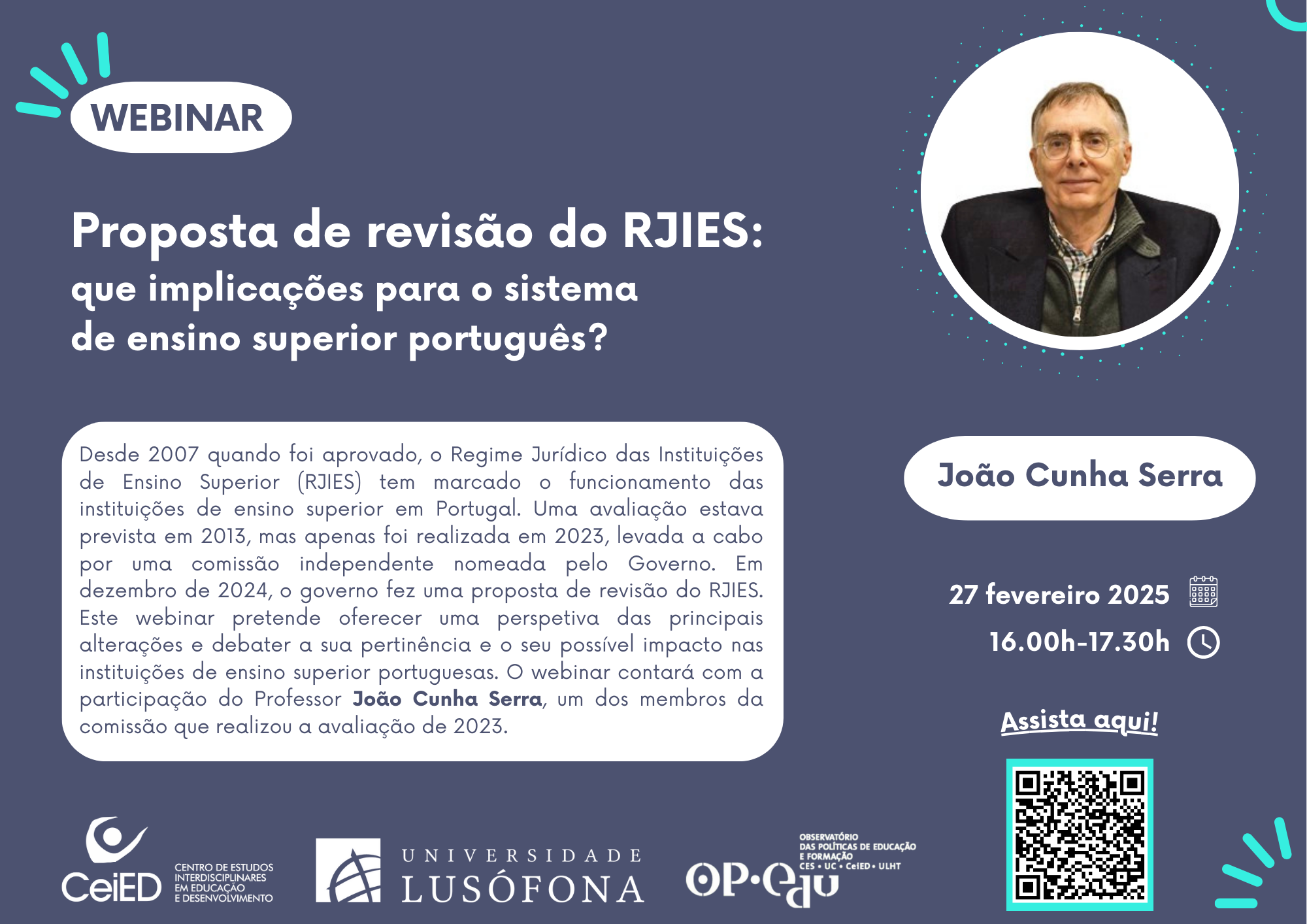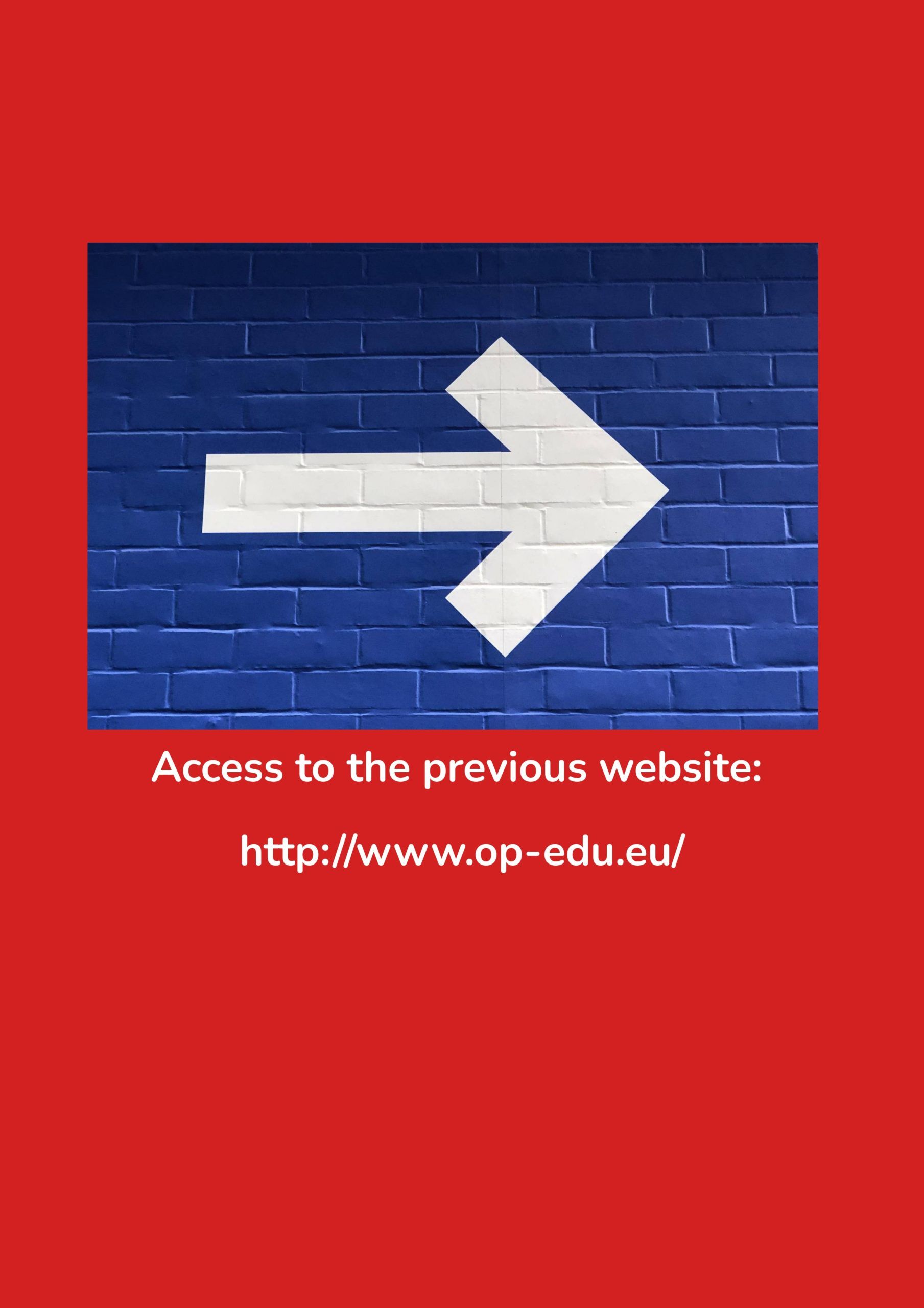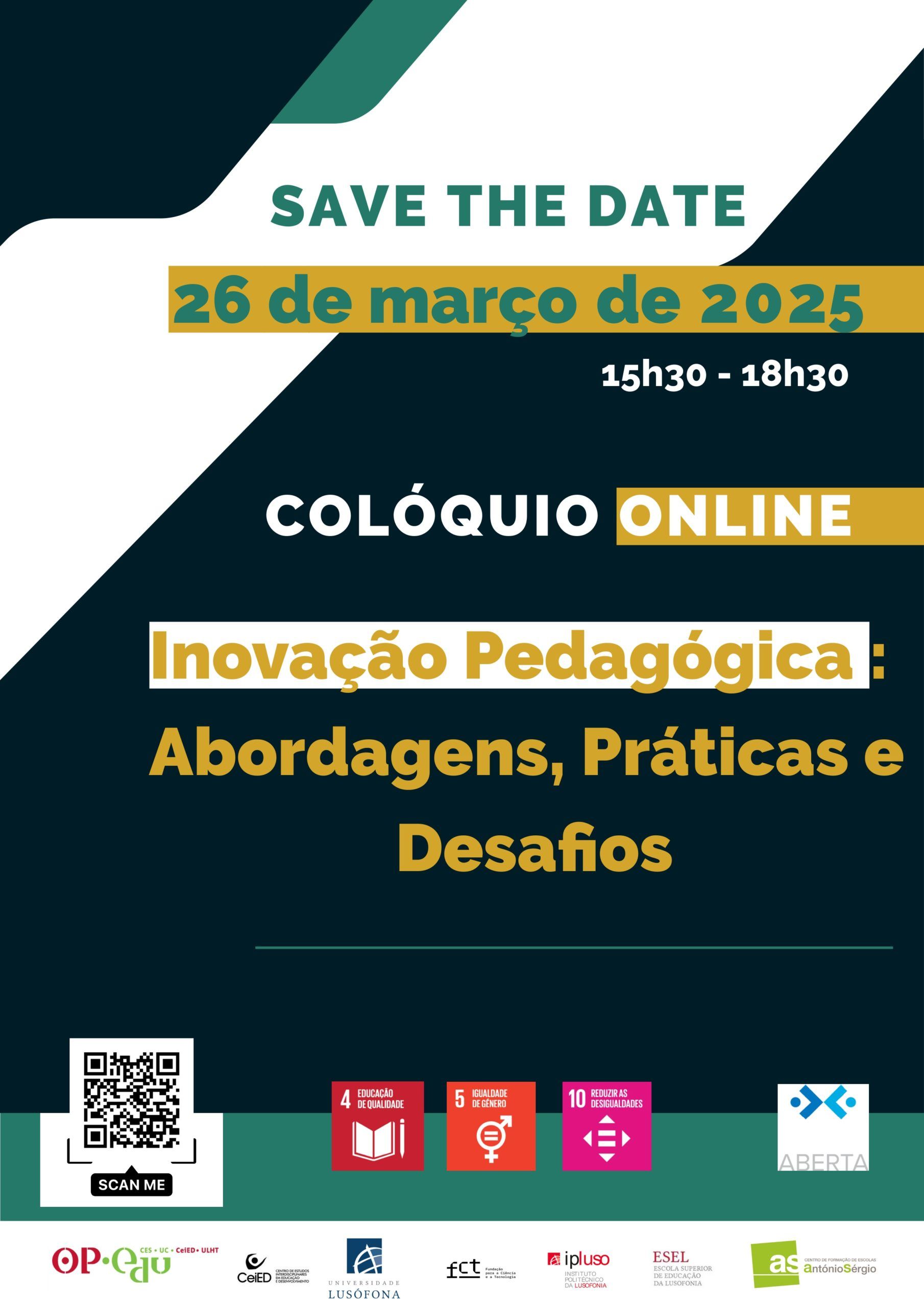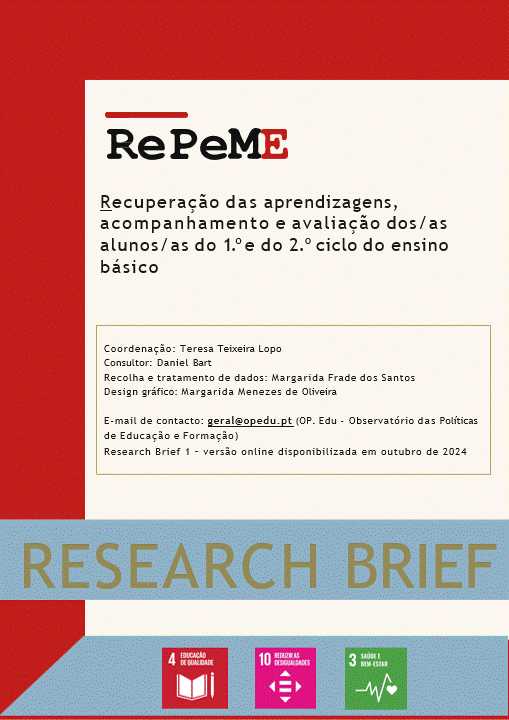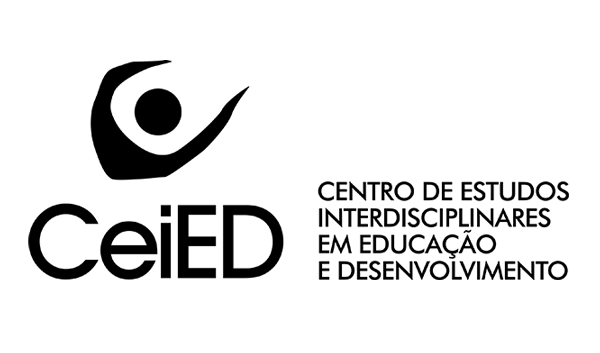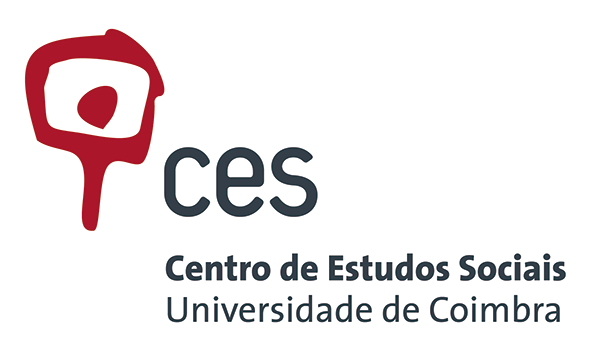Events in partnership with OP.Edu
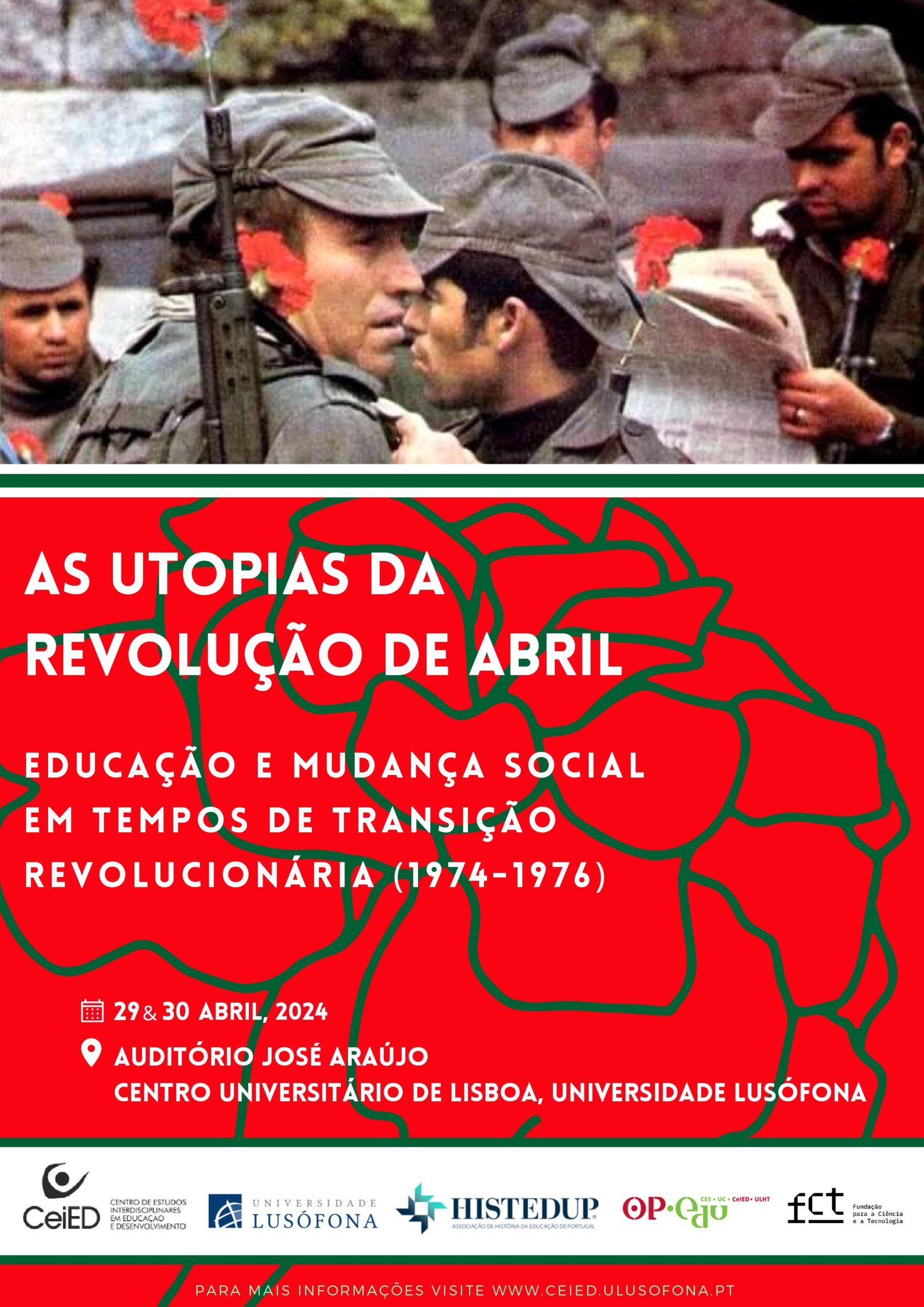
The Utopias of the April Revolution. Education and Social Change in Times of Revolutionary Transition (1974 -1976) | April 29 and 30, 2024 | Lusófona University – José Araújo Auditorium
PROGRAMME
29 APRIL, MONDAY
10.00
- Reception of Participants
11.00
- Opening Session
- António Teodoro, Director of CeiED, Lusófona University
- Carla Vilhena, President of HISTEDUP, University of Algarve
- José Bragança Miranda, Rector of Lusófona University
11.30
- Opening Speech | Francisco Bairrão Ruivo, IHC – Institute of Contemporary History, NOVA University of Lisbon
13.00
- Lunch break
14.30
- Round Table 1 | “Schools go to the streets and the streets go to the schools”. A roadmap for pedagogical innovation
- Raquel Pereira Henriques, Faculty of Social and Human Sciences, NOVA University of Lisbon
- Luís Mota, School of Education, Polytechnic Institute of Coimbra
- António Gomes Ferreira, Faculty of Psychology and Education Sciences, University of Coimbra
- Carla Vilhena, University of Algarve
- Joaquim Pintassilgo, Institute of Education, University of Lisbon
- Moderator: Justino Magalhães, Institute of Education, University of Lisbon
16.00
- Coffee break
16.30
- Round Table 2 | Power to teachers and schools: trade unionism, democratic management and teacher identities
- António Teodoro, Lusófona University
- Licínio C. Lima, University of Minho
- Amélia Lopes, University of Porto
- Moderator: Ana Patrícia Almeida, Aberta University
30 APRIL, TUESDAY
09.30
- Oral presentations
11.30
- Round Table 3 | Democratisation and sport culture
- José Baeta Sequeira da Silva, Professor of Physical Education
- Manuel Brito, President of the Portuguese Anti-Doping Agency
- Jorge Proença, Lusófona University
- Moderator: José V. Brás, Lusófona University
13.00
- Lunch break
14.30
- Round Table 4 | Popular power and emancipation. Students’ participation in the literacy movements
- Maria João Mogarro, Institute of Education, University of Lisbon
- Pierre Marie, CES – Centre for Social Studies, University of Coimbra
- Luísa Tiago Oliveira, ISCTE – University Institute of Lisbon
- Moderator: Teresa Teixeira Lopo, Lusófona University
16.00
- Coffee break
16.30
- 50 years later, was it worth it? A conversation with Colonel Vasco Lourenço, member of the Coordination Committee of the Armed Forces Movement (MFA) and of the Council of the Revolution. President of the April 25 Association
17.30
- Closing session
- António Teodoro, Lusófona University
Venue: Lusófona University – University Centre of Lisbon, José Araújo Auditorium.
Registration can be done here. Further information on the programme can be found here.
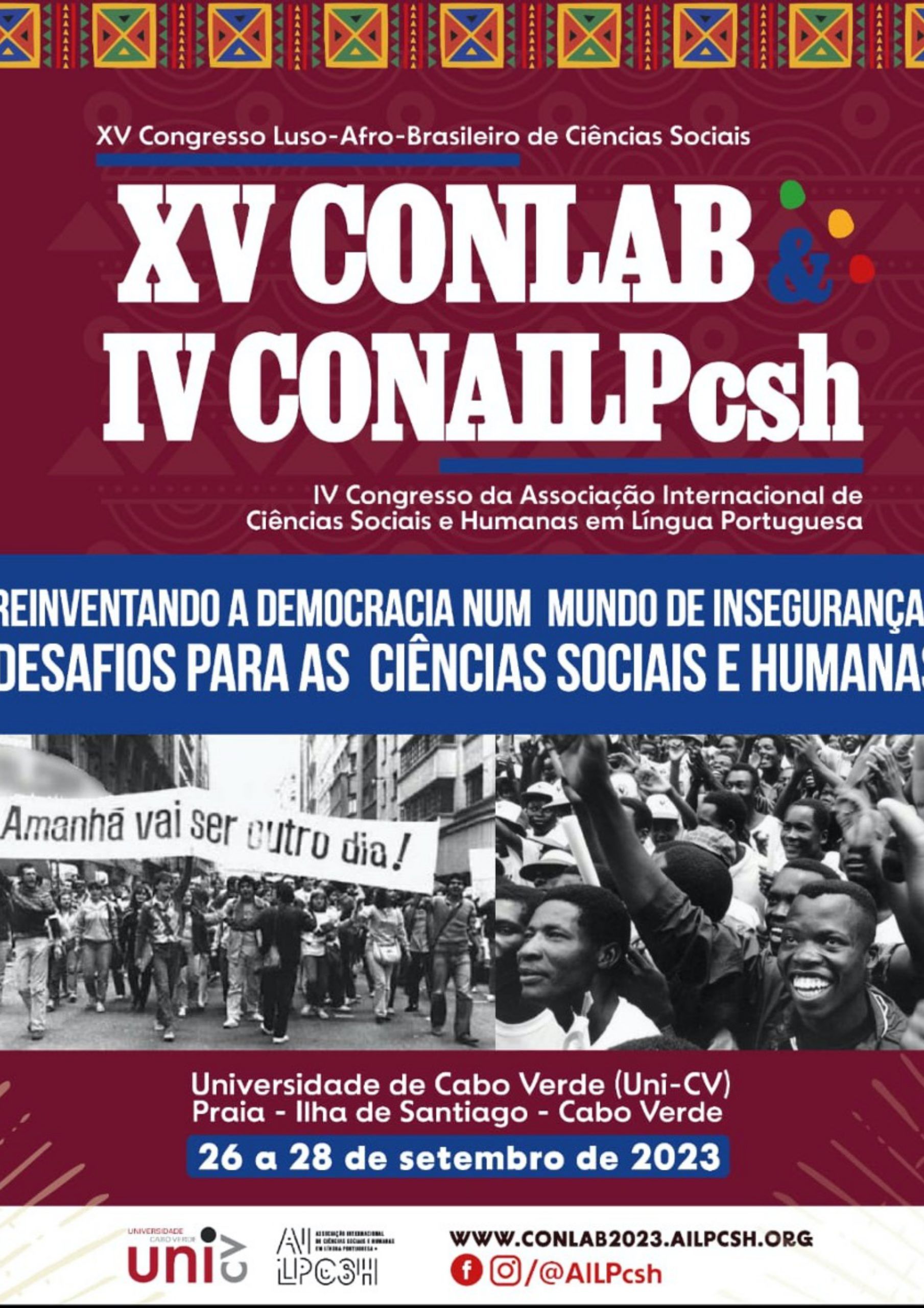
XV CONLAB & IV AILPcsh Congresses | 26 to 28 September | Full programme now available
The XV Luso-Afro-Brazilian Congress of Social Sciences (CONLAB) and the IV Congress of AILPcsh (CONAILPcsh), which have in its Scientific and Organizing Committees researchers from OP.Edu, will be held from September 26 to 28, 2023 at Uni-CV, in the city of Praia, Santiago Island, Cape Verde.
AILPcsh – International Association of Social Sciences and Humanities in Portuguese Language, was established following eleven Luso-Afro-Brazilian Social Sciences Congresses, the first edition of which dates back to 1990. Biannually held, the Congresses have promoted the development of a relevant community of scientists in the Social Sciences and Humanities in the Portuguese-speaking countries – Angola, Brazil, Cape Verde, Guinea-Bissau, Mozambique, Portugal, São Tomé and Príncipe and East Timor. These Congresses have led to several scientific research collaborations and important publications.
The Congress program, under the theme Reinventing Democracy in a World of Insecurities: Challenges for Social Sciences and Humanities, will include conferences, thematic sessions, round tables, working groups, oral papers, cultural activities and network meetings.
The full programme of the Congresses can be accessed here.
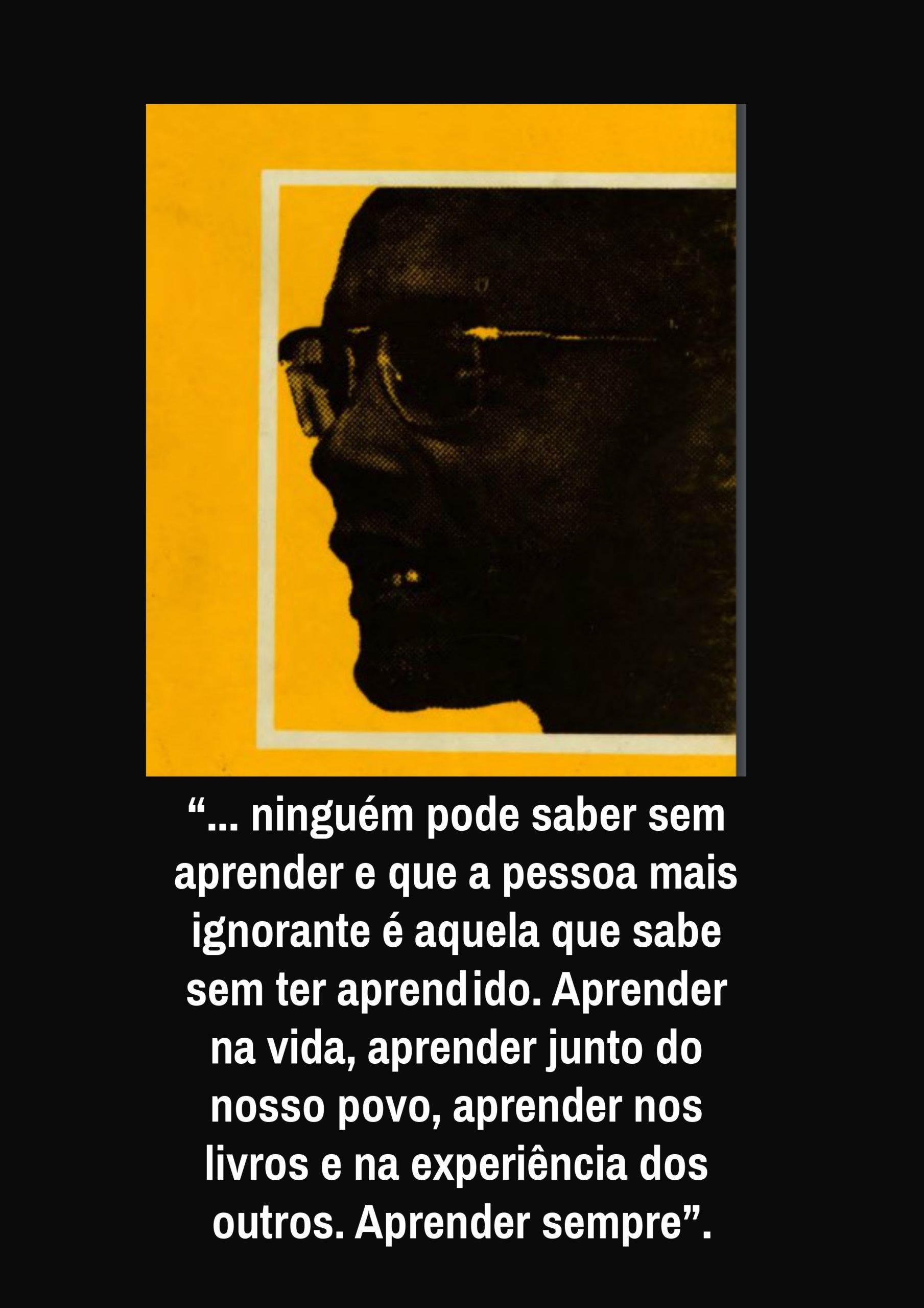
Thinking about Education with Amílcar Cabral
OP.edu participated in the Meeting The thought of Amílcar Cabral and Education, which took place on 25 May, the date that marks the Africa Day, established by the United Nations in 1972.
Ângela Benoliel Coutinho (Researcher at IPRI – Portuguese Institute of International Relations), Julião Soares Sousa (Researcher at CEIS20 – Centre for Interdisciplinary Studies) and Fernanda Marques (former Minister of Higher Education, Science and Culture of Cape Verde and former Minister of Education and Sports of Cape Verde), shared the results of their research and reflections on the work of Amílcar Cabral, for whom Education was a determining factor in the process of development and social transformation of the material living conditions of societies.
The Meeting was attended, among others, by doctoral students in Education and Sociomuseology, as well as teachers, researchers and students of the Licentiate Degree in Education Sciences – Social Education of the Lusófona University – University Centre of Lisbon.
It was a first approach on the thought of Amílcar Cabral to Education, which will continue from October 2023, with other dissemination and training initiatives that will count, in the tasks of organisation and public communication, with the participation of OP.Edu.
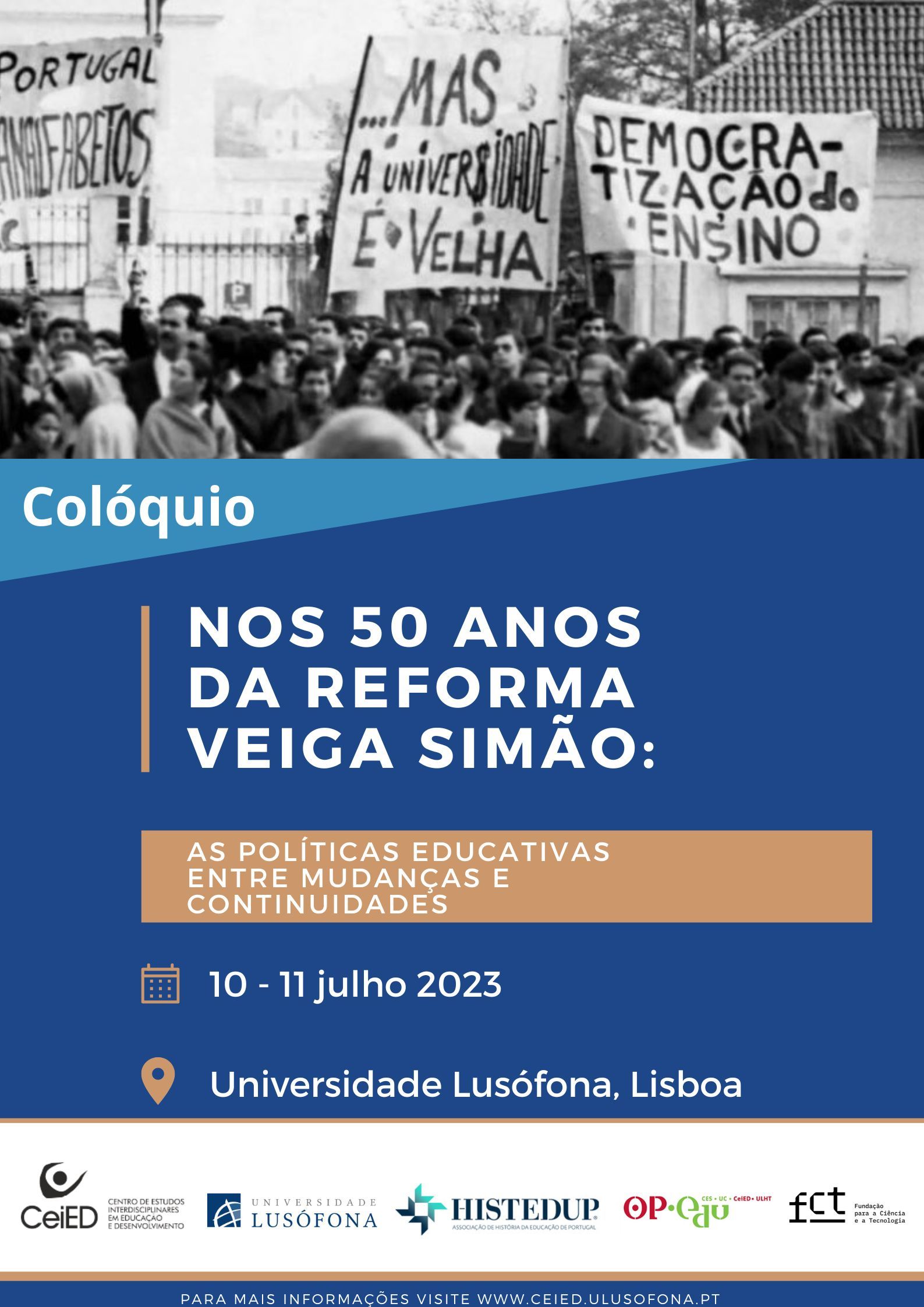
OP.Edu joins the organization of the Colloquium On the 50 Years of the Veiga Simão Reform: education policy between changes and continuities | Registration open until July 9, 2023
OP.Edu joins the organization of the Colloquium On the 50 Years of the Veiga Simão Reform: education policy between changes and continuities, which will be held at the José Araújo Auditorium of the Universidade Lusófona – University Centre of Lisbon, on 10 and 11 July 2023.
The Veiga Simão Reform placed education at the heart of the debates on the development and modernization of Portugal. It also allowed, due to its limitations and contradictions, to make visible to the Portuguese society the complete exhaustion of the political form of organization of the Estado Novo/New State.
We encourage the participation of the scientific community and the general public in this Colloquium, which aims at sharing knowledge and research on this pivotal period in the history of Portugal (and of the countries that emerged from Portuguese colonialism).
Registrations are open until July 9.
More information about the Colloquium can be found here
- 1
- 2
Notícias / News
- Home
- Events in partnership with OP.Edu
